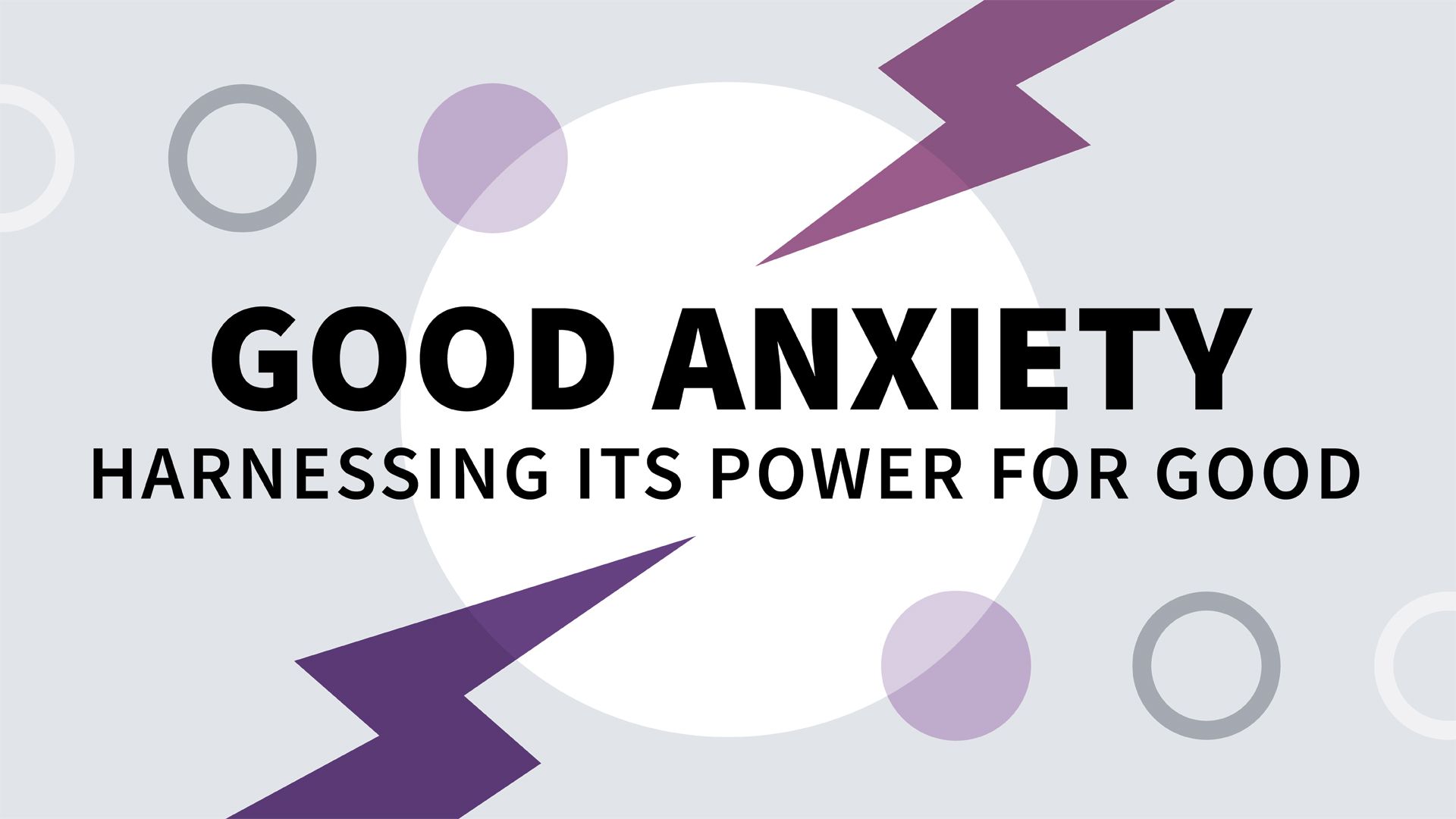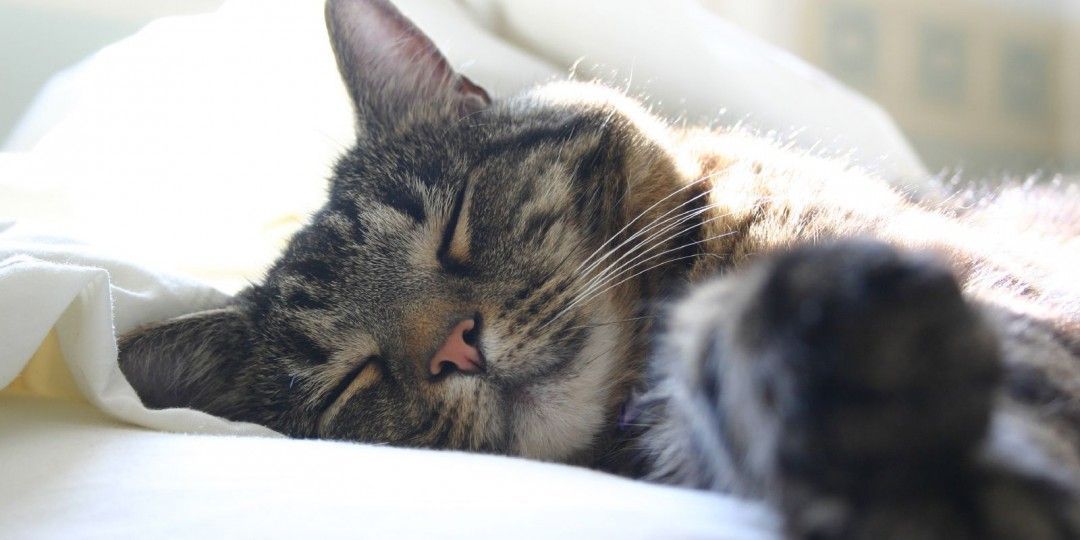Embrace Anxiety: 5 Reasons Why Being Anxious Is Not Always Negative
Anxiety can be useful in small doses. It can help us stay alert and focused and motivates us to take action.

Anxiety is a normal human emotion we all experience at one point or another. It's what we feel when we're worried or nervous about something, and it's a natural stress response. For most people, anxiety is temporary and goes away once the stressful situation has passed. But for some, anxiety can be a long-lasting problem that interferes with daily life.
Anxiety disorders are the most common mental health disorders in the United States. According to the National Institute of Mental Health, about 18% of adults in the U.S. suffer from an anxiety disorder in any given year. That means that nearly one out of every five adults experiences anxiety that is severe enough to interfere with daily life at some point during their lifetime.
There are many different types of anxiety disorders, but they all share one common feature: excessive fear or worry that exceeds the actual situation and interferes with daily activities. People with anxiety disorders may have symptoms such as heart palpitations, sweating, trembling, shortness of breath, or a feeling of impending doom. Some people also experience physical symptoms such as fatigue, headaches, stomach problems, or muscle tension.
Anxiety disorders can be debilitating and can make it difficult to function in everyday life. But there is hope! With treatment, most people with anxiety disorders can learn to manage their symptoms and live happy and productive lives.
Why Do We Get Anxious?
Anxiety can be useful in small doses. It can help us stay alert and focused and motivates us to take action. However, when anxiety becomes overwhelming, it can interfere with our daily lives and happiness. So why do we get anxious?
There are many reasons why people experience anxiety. For some, it may be due to a traumatic event or stressful life circumstances. Others may have a family history of anxiety or a genetic predisposition. Others may still develop anxiety due to medical conditions or medications.
No matter the cause, there are ways to manage and reduce anxiety. Cognitive-Behavioural Therapy (CBT) can help people learn how to identify and change thinking patterns that contribute to their anxiety. Relaxation techniques, such as deep breathing and progressive muscle relaxation, can also help manage symptoms.
5 Reasons Anxiety Isn't Always Negative
Anxiety is often seen as a negative emotion, but it doesn't have to be. There are actually quite a few reasons why anxiety can be a positive force in your life.
For one, anxiety can be a motivator. If you're feeling anxious about an upcoming event, it can spur you to prepare more and work harder to ensure that everything goes off without a hitch. Anxiety can also help you stay alert and focused, which can be beneficial in high-pressure situations.
Another reason why anxiety can be helpful is that it can prompt you to take action when something isn't right. If you're constantly worrying about your health, for example, it may eventually lead to lifestyle changes or seeing a doctor for regular checkups. In some cases, anxiety can even save lives.
So, while there are certainly some downsides to anxiety, it's important to remember that it isn't always a bad thing. Embrace your anxiety and use it to your advantage!
1. Changes in Perspectives
Anxiety is often associated with negative connotations. It is commonly seen as a disorder that causes people to feel overwhelmed, out of control, and unable to function in day-to-day life. However, anxiety can also be a positive force in our lives. It can help us stay alert and aware of potential dangers, motivate us to take action, and even improve our performance in certain tasks.
2. Abundant Creativity
When it comes to anxiety, it's important to remember that not all anxiety is created equal. In fact, some anxiety can be beneficial for your creativity.
Here are three reasons why being anxious can help you tap into your creative side:
1. Anxiety can help you focus.
If you're feeling anxious, chances are your mind is racing with various thoughts and concerns. While this can be overwhelming, it can also help you focus on a specific task. When you're able to filter out the noise and zero in on what's important, you're more likely to come up with creative solutions.
2. Anxiety can push you out of your comfort zone.
If you're stuck in a rut, anxiety can be just the thing to push you out of your comfort zone and into new and exciting territory. We're often more open to new ideas and experiences when we're anxious. And it's these new experiences that can fuel our creativity.
3. Anxiety can make you more sensitive to your environment.
When we're anxious, we tend to notice things we would otherwise have missed. This heightened awareness can be harnessed to help us see the world in new and different ways, which is essential for creativity.
People who are anxious are often brimming with creativity. Scientists have found that anxiety and creativity are interconnected. When people are in an anxious state, they tend to think more creatively. This is because anxiety activates the fight-or-flight response, which encourages people to come up with new and innovative solutions to problems.
Anxiety can also be a source of inspiration for artists and writers. Many artists use their anxiety as a source of inspiration for their work. For example, the German Expressionist artist Edvard Munch famously painted The Scream after experiencing a bout of anxiety. Similarly, the writer Virginia Woolf used her anxiety to fuel her literary works.
While some people may find that their anxiety hampers their creative endeavors, others may find that it enhances their creativity. If you find yourself in the latter group, embrace your anxiety and let it inspire your next creative project.
3. Develops Stamina
When it comes to anxiety, most people focus on the negative aspects of the condition. However, there are some positive aspects to anxiety that are often overlooked. One of these is the fact that anxiety can actually help to develop stamina.
Anxiety can be a powerful motivator. It can push us to do things that we wouldn't otherwise do, and it can help us to develop new skills and talents. If we can learn to harness the power of our anxiety, it can be a real asset in developing stamina.
Learning how to control our anxiety is key. If we can find healthy ways to cope with our anxiety, we can start to use it to our advantage instead of letting it hold us back. We need to remember that anxiety is not our enemy – it's just a part of who we are. Once we learn how to work with it, we can start using it to help us become stronger and more resilient people.
4. Enhances Focus
When we think of anxiety, we tend to think of the negative effects it can have on our lives. We may feel like we can't focus, or that our racing thoughts are out of control. However, there are some positive aspects to anxiety as well. Here are some reasons why being anxious is not always negative:
1. Anxiety can enhance focus.
When we're feeling anxious, we tend to be more alert and focused. This can be helpful when we need to be sharp and on our game.
2. Anxiety can motivate us to take action.
When we're feeling anxious, we often want to do something to ease our discomfort. This can lead us to taking productive action, such as getting organized or completing a project.
3. Anxiety can help us connect with others.
When we share our anxiety with others, we often find that they can relate and feel connected to us. This helps reduce feelings of isolation and loneliness.
4. Anxiety can be a source of creative inspiration.
Some of the world's greatest creative minds have credited their anxiety as a source of inspiration for their work. If you're feeling anxious, try channelling your energy into something creative, like writing or painting.
5. Anxiety can be a sign of growth.
Sometimes anxiety is a sign that we're growing and expanding outside of our comfort zone. Though it may be uncomfortable at times, this growth is essential for leading a fulfilling life.
5. Promotes Connection
It can be easy to view anxiety as nothing but a negative emotion. After all, it is often accompanied by physical symptoms like a racing heart, sweating, and shaking. But there is another side to anxiety that is not often talked about: it can actually be beneficial in some situations.
Here are three ways that anxiety can promote connection:
1. It can help you bond with others who are also anxious.
If you suffer from anxiety, chances are you know how isolating and lonely it can feel at times. But remember that there are millions of other people out there who are experiencing the same thing. When you meet someone else who also struggles with anxiety, it can help create an instant connection and sense of understanding.
2. It can make you more compassionate.
Anxiety can be overwhelming and all-consuming at times, but it can also give you a deep appreciation for what others are going through. When you see someone struggling with something that you know all too well, it naturally leads to feelings of compassion and empathy.
3. It can motivate you to help others.
If you've ever been helped by somebody during a tough moment, then you know how amazing it feels to receive that kind of support. Why not pay it forward? Volunteering your time or simply lending a listening ear to somebody else in need can make a world of difference – for both them and for you.
Conclusion
Anxiety can often be perceived as a negative emotion that should be eradicated, however, it's important to note that anxiety can actually impart positive impacts on our life. With the right strategies and understanding of how to embrace this natural response instead of fighting against it, we can allow anxiety to work in our favour by becoming more aware and better equipped to handle various challenges and pressure situations. Furthermore, being mindful of what brings us joy and comfort would go a long way in developing healthy habits that alleviate any unnecessary overwhelm or stress.






